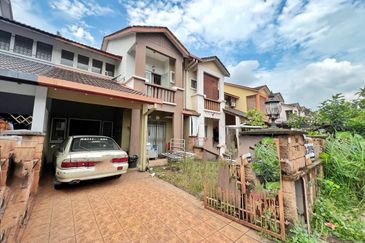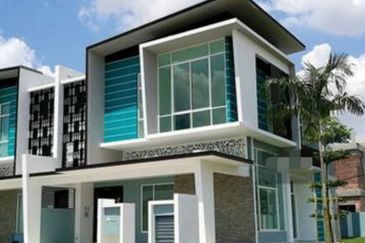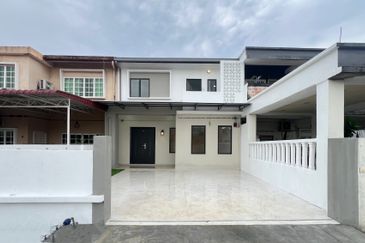
- Anwar said that the implementation of development projects that are problematic and facing delays has resulted in an increase in costs and negatively impacted economic growth.
KUALA LUMPUR (Nov 7): Malaysia’s actual development expenditure (devex) is shrinking every year despite increases in allocation under the country’s annual budgets, according to Prime Minister Datuk Seri Anwar Ibrahim.
In a statement on Monday (Nov 6), Anwar, who also holds the finance minister post, said this finding was made in a National Economic Action Council meeting, adding that the decrease in actual devex could have a long-term impact on Malaysia’s economic growth.
No further elaboration on the meeting's findings was disclosed in the statement.
Looking at Malaysia’s latest annual budgets, RM90 billion was allocated for devex in Budget 2024, as compared to RM97 billion in Budget 2023, RM71.57 billion in Budget 2022, RM64.26 billion in Budget 2021 and RM51.36 billion in Budget 2020.
Further, Anwar said that the implementation of development projects that are problematic and facing delays has resulted in an increase in costs and negatively impacted economic growth.
“It was also found that effectively determining specifications and evaluating costs of ICT projects is difficult, and that a cost review process is difficult without a standard cost estimate. This can lead to repeated duplication of work and increased ICT project costs,” he added.
In response, Anwar said the government is to take a number of immediate policy measures to improve the implementation of devex projects.
This comprises the formation of a cross-ministerial team to review and prepare an improvement framework; decentralising project implementation by giving control to implementation agencies accompanied by strict governance; and centralising implementation and determination of specifications and costs of ICT projects to the Malaysian Administrative Modernisation and Management Planning Unit.
Ringgit weakness won’t affect economic growth prospects
Speaking on the ringgit, Anwar said the performance of the local note — which has been depreciating due to expectations that US interest rates will remain higher for longer, as well as geopolitical factors — is not expected to affect the country’s growth prospects.
He said Putrajaya’s structural reform efforts, including initiatives under the New Industrial Master Plan (NIMP) 2030 and National Energy Transition Roadmap (NETR) will strengthen Malaysia’s competitiveness.
“This will increase the country’s attractiveness to foreign investors, further helping to strengthen the value of the ringgit more sustainably," he added.
He noted that Bank Negara Malaysia is committed to curbing excessive volatility to ensure that the ringgit exchange market remains orderly.
At 9.05am today, the ringgit had depreciated to 4.6550/6600 versus the greenback, from Monday’s closing rate of 4.6340/6400.
Looking to buy a home? Sign up for EdgeProp START and get exclusive rewards and vouchers for ANY home purchase in Malaysia (primary or subsale)!


























